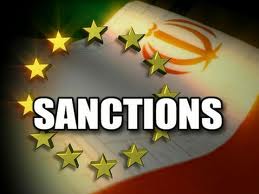The European Union (EU) sanction will isolate Iran financially by making it almost impossible for money to flow in and out of the country via official banking channels.
Society for Worldwide Interbank Financial Telecommunication (SWIFT), the body that handles global banking transactions, says it will cut Iran’s banks out of the system on Saturday to enforce sanctions.
The move follows EU sanctions against Iran over lack of tranparency over its nuclear program.
Iran has the world’s third-largest oil reserves will hit its oil industry, but may also have a heavy impact on Iranians who live abroad and send money home.
Sanctions expert Mehrdad Emadi: “Losing SWIFT facilities is equivalent to not having travel documents for a business person”
Iran last week agreed to hold talks with six major world powers over its nuclear program, although no date or venue has been set.
The US and its allies accuse Iran of trying to develop nuclear weapons, a charge it denies.
Almost all banking transactions pass through Belgium-based SWIFT, which is sometimes called the “glue” that holds the financial system together.
SWIFT will pull the plug at 1600 GMT on Saturday, in what is all but the final blow to Iranian business dealings.
Iran’s business activities had already been restricted by US anti-money laundering legislation which made it risky for banks around the world to do business with Iran, including trade financing.
One Iranian businessman said SWIFT’s move would make it now impossible to conduct business with Iran.
China and India have said they will still take Iranian oil, but the only obvious way for Iran to be paid for it is now in gold.
Its announcement coincides with news that major money exchange houses in the nearby United Arab Emirates have stopped handling Iranian rials over the last few weeks, something that has further reduced Iran’s ability to trade and acquire hard currency.
